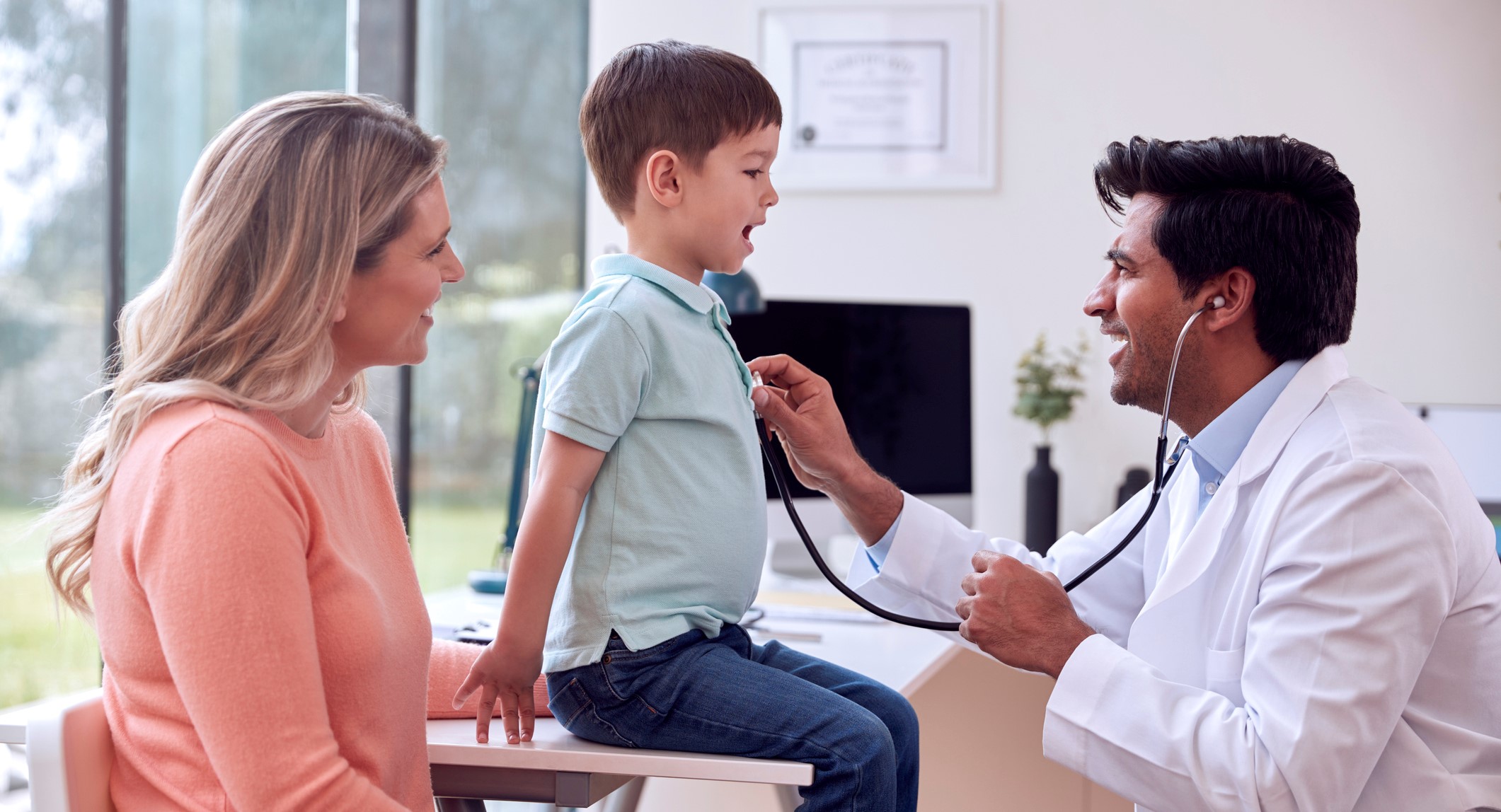UK HealthCast: How to help your child cope with the stress of medical procedures

UK HealthCast is a podcast series featuring interviews with UK HealthCare experts on a variety of topics.
We were joined on this episode by Emily Bollinger, a certified child life specialist at Kentucky Children’s Hospital. Bollinger works to help children and families cope with challenging medical situations and was instrumental in introducing Child Life Services to our Pediatric Emergency Department.
Here, Bollinger provides tips for how parents can help their children work through the stress of medical exams and procedures.
What are some issues children might face when going for a medical exam or doctor's visit?
With many kids, just like adults when they go to a doctor's office or any type of medical procedure, there's going to be some uncertainty. There's going to be some questions. There's going to be concerns about if something is going to hurt, what are they going to do, what's going to happen during this visit.
What that looks like for kids and what those concerns tend to be focused on really varies based on their developmental levels. So, what's stressful about going to see the hospital for a one-year-old is going to be very different than what is stressful for a 15-year-old. But that general uncertainty and wariness of possible pain or discomfort are likely to be at the forefront of their minds.
How soon before a visit should we begin to prepare?
Our general rule of thumb is the younger the child, the closer to the event itself you want to start talking about it. So, if you are taking your two-year-old, then you don't want to blindside them and just suddenly show up at the doctor when they thought they were going out for ice cream.
But it is appropriate if you go to a playground or something that morning and then let them know, "Okay. We can go on the swings, then we're going to go for a checkup at your doctor's office."
For a teenager, they understand time a little bit better, they can think about it.
And so, letting them know when it's scheduled or days to weeks in advance is appropriate. If it's a child that has a lot of anxiety or concerns or may have a more unique reaction, then that's kind of a parent's judgment call.
Some kids really need time to get used to the idea and ask their questions, and some kids don't want to know as much. But in general, a younger kid you can do day of or night before. With an older kid or an adolescent, it's appropriate to talk about it days or weeks in advance.
What can we do in to help them cope on the day of the visit or during the commute?
We always encourage everyone to be honest with kids. A lot of times adults try to sneak something in or sugarcoat something or downplay it because of our own anxiety or our own discomfort talking about things. Kids tend to do much better than adults at handling unfamiliar situations and circumstances if they have accurate information.
We (might) tell kids, "We're going to a doctor's office and they're going to check your body from head to toe," or "Today, we will need to get your flu shot."
If it's going to be part of the experience, let kids know rather than trying to trick them or sneak something in.
Also, (you might) give them control over the situation. For example, saying, "We're going to the doctor and we're expecting to be there for about as long as it takes to watch an episode of Daniel the Tiger. What do you think would be fun to do after we leave?"
Listen to our entire UK HealthCast podcast with Emily Bollinger below:




